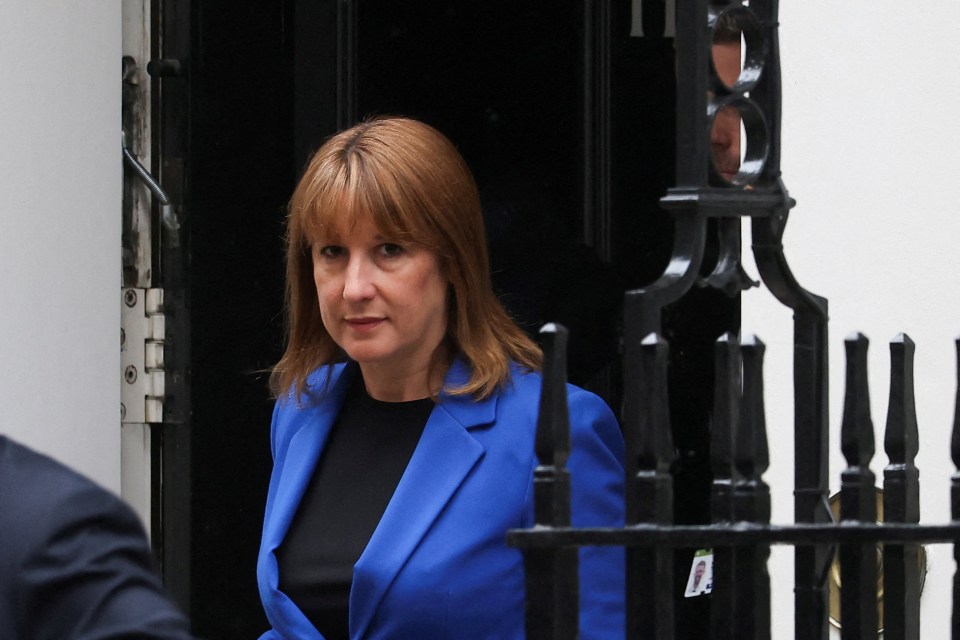MILLIONS of workers could be hit hard if Chancellor Rachel Reeves slashes pension tax relief in the upcoming Budget, experts have warned.
A new report from pensions consultancy LCP warns that such a move could spark a political and economic backlash, reminiscent of the infamous 2012 “Omnishambles” Budget, which saw controversial measures unravel within days.
The Chancellor is under pressure to tackle a £51billion gap in public finances, sparking speculation that tax hikes and spending cuts could be on the way.
One area being considered is pension tax relief, with potential changes including cutting higher rate relief, limiting tax-free lump sums, or scrapping the popular ‘salary sacrifice’ schemes.
However, pensions experts argue these changes could be a political minefield, with significant risks for working families, public sector employees, and employers.
LCP identified three potential areas the Chancellor might target to grab cash from people’s hard-earned savings.
The first is axing higher-rate tax relief, which would scrap the extra help given to higher earners.
Currently, when you save into a pension, the government adds back the income tax you paid on that money, giving you tax relief at your personal income tax rate.
For basic-rate taxpayers, this is a 20% top-up, meaning an £80 contribution is boosted to £100 in their pot.
However, higher-rate taxpayers get 40% relief, turning a £60 contribution into £100, while top earners get 45%.
Ending this would mean everyone gets the same flat rate of relief, likely set at the basic 20% level.
A second target could be the hugely popular tax-free cash lump sum.
This long-standing rule allows people to take a quarter of their entire pension pot in one go, completely tax-free, when they retire.
Many people rely on this money for big expenses like clearing their mortgage.
A change could see this amount capped or even abolished entirely.
Finally, the report warns the Chancellor could ban ‘salary sacrifice’ schemes.
This is a smart swap offered by many employers where you agree to a slightly lower salary in return for your boss paying that amount directly into your pension.
Because your official salary is lower, both you and your employer save money by paying less National Insurance.
The report, ‘How to avoid an Omnishambles Budget’, warns these moves are “traps for the unwary” that would cause chaos for little reward.
Abolishing salary sacrifice would hit over three million basic-rate taxpayers, who would see their take-home pay shrink due to higher National Insurance payments.
Tim Camfield, report co-author and a principal at LCP said: “Millions of people on modest incomes benefit from various features of the tax relief system, including the ability to sacrifice salary and benefit from a reduced National Insurance bill.
“If this measure was scrapped, employees paying basic rate tax and trying to do the right thing by saving for their retirement could well be losers, as well as the employers who try to provide good pensions. Any such change could undermine pension saving and confidence in the system and should be avoided.”
Meanwhile, tinkering with tax-free cash or higher-rate relief would hammer public sector staff, who often have generous but less flexible pension schemes, potentially inflaming already tense industrial relations.
Experts also warn the changes are so complex they would fail to raise significant money before the next election.
Any cap on tax-free cash, for example, would likely need special protection for those nearing retirement, making it largely toothless for years.
Steve Webb, a partner at LCP and former Pensions Minister, warned of the political fallout.
“Raiding pension tax relief may look superficially attractive for a cash-strapped Chancellor,” he said.
“But lying beneath the surface are multiple traps for the unwary, meaning that reforms might raise far less than expected, break manifesto promises to workers or put additional burdens on employers who are already under pressure.
“The political backlash against such reforms could easily echo previous ‘Omnishambles’ Budgets where a U-turn was made within a matter of weeks.”
What are state pension errors?
STEVE Webb, partner at LCP and former Pensions Minister, explains what state pension errors are and how they can occur:
The way state pensions are worked out is so complicated that many thousands of people have been paid the wrong amount for years without even realising it.
The amount of retirement pension you get usually depends on your National Insurance (NI) record.
One big source of errors has been cases where NI records have been incorrect, particularly for years spent at home with children.
This is a system known as ‘Home Responsibilities Protection’.
Alternatively, particularly for older pensioners, the amount you get can depend on the NI contributions made by your spouse.
Errors have arisen where the Government has failed to adjust the pensions of married women when their husbands retired or failed to increase pensions when someone was bereaved and lost a husband or wife.
Although the Government has spent years trying to fix these problems, there are still many thousands of people – many of them older women – on the wrong pension.
If you have always thought that your pension seems low, then it is worth contacting the Pensions Service to ask them to check, especially if you spent time at home raising children or if you were widowed and your pension didn’t change when your spouse died.
What else could be announced?
As the Chancellor faces mounting fiscal challenges, economists are predicting that Rachel Reeves will need to raise taxes or cut spending to meet her targets.
Rising interest payments on government debt are eating into the government’s available funds, prompting speculation about broader tax reforms.
One proposal under review is applying National Insurance to rental income, which critics argue could lead to higher costs for tenants.
There is also talk of replacing stamp duty with an annual property tax on homes worth over £500,000, sparking debate.
Capital gains tax on properties valued above £1.5million is another option being explored.
Plus, there’s speculation about lowering the VAT threshold, which would bring more small businesses into the tax system.
This could increase their costs and potentially lead to higher prices for consumers.
Reeves is expected to make economic growth the centrepiece of her next Budget, warning that Britain’s economy is “stuck” and in need of bold solutions.
She has since confirmed that the highly anticipated, make-or-break Budget – her second since taking office – will be unveiled on November 26.











